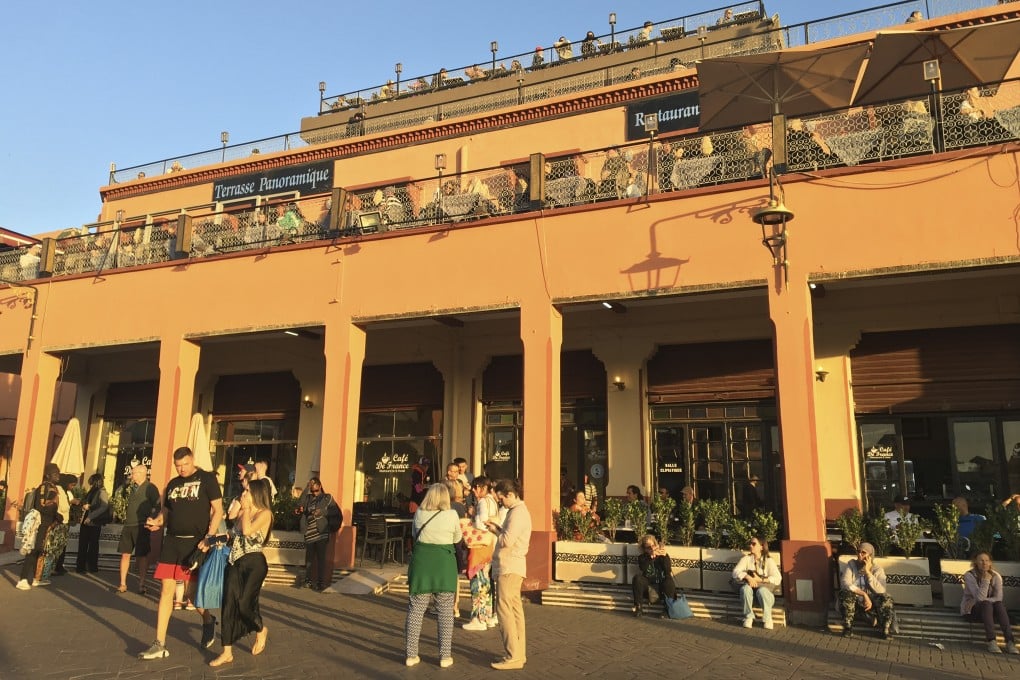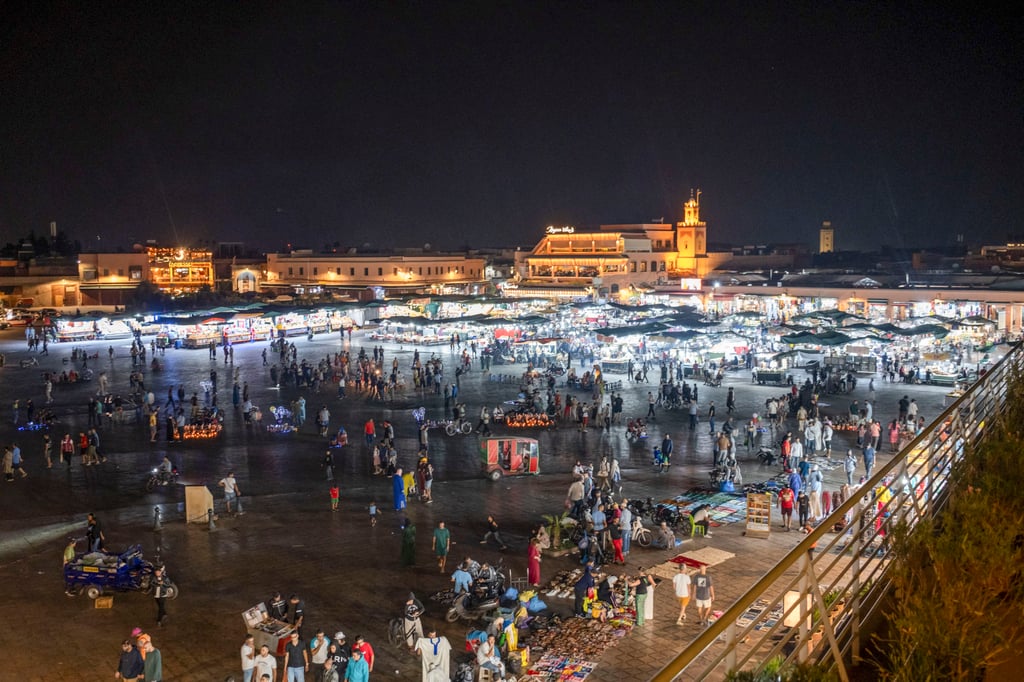Morocco tourism hotspot Marrakech makes quick recovery from September 2023 earthquake: damaged buildings repaired, visitors are back
- On September 8, the Atlas Mountains and Marrakech in Morocco were shaken by a magnitude 6.8 earthquake that killed thousands and caused widespread damage
- Three months later, Marrakech’s famous Jemaa el-Fna square is buzzing again, buildings have been repaired and the tourists have returned

December is a tempting month in which to visit Marrakech, with its mild temperatures and blue skies.
Sitting on the rooftop terrace of the Café de France – the history of which stretches back to 1912, when Morocco was a French protectorate – I take in the scene as the sun sets over the ancient city’s immense square, Jemaa el-Fna.
Tourists and locals form circles around bands of musicians, dancers, snake charmers and storytellers, while waiters shuttle between evening-only food stalls and rickety tables.

Today, though, as a frequent visitor here, I can hardly see any quake damage.
Marrakech is Morocco’s most important tourist destination and the government has gone to remarkable lengths to show the world that the city is back to normal, says Englishman James Wix.